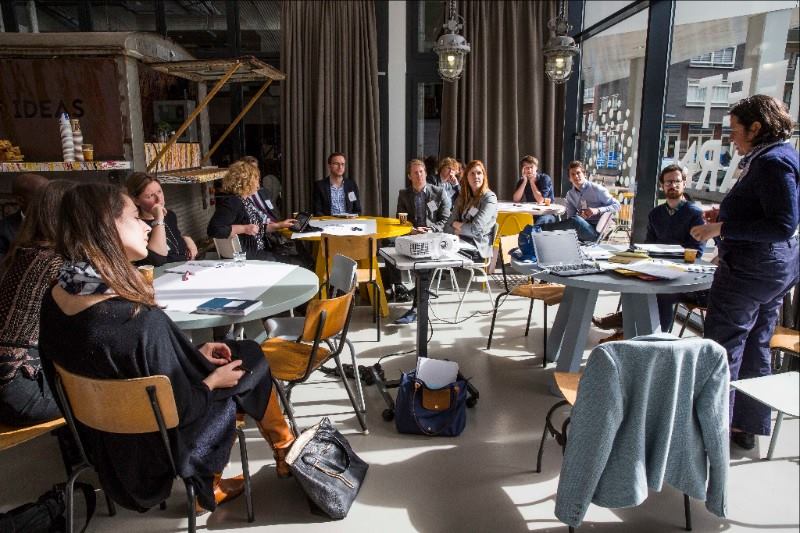
On Thursday 7 April, the Knowledge Platform Security & Rule of Law held their fourth annual conference, titled “Hard Contexts, Hard Choices.”
Together with the Clingendael Institute and the Statistical, Economic, and Social Research and Training Centre for Islamic Countries (SESRIC), NIMD organized a session called “Peace within reach” in which the topic was the prospect for peace in three countries currently involved in different stages of the peace process – Colombia, Burundi, and Libya. The question of the discussion and debate was: “Is peace within reach?”
The panel
An expert panel addressed the question by discussing the peace process in each country. Juan Fernando Londoño, former Deputy Minister on Human Rights and Public Relations and current Director of the Center for Analysis of Public Affairs, provided an inside perspective on the effectiveness of peace talks in ending the relation between politics and violence in Colombia. From Burundi, Fabien Nsengimana, Executive Director of the Burundi Leadership Training Programme and expert on political dialogue and negotiations, gave his views on the ongoing recovery process from years of ethnic violence in Burundi. Finally, Mustafa El Sagezli, who was one of the leaders in the opposition resistance against Muammar Gaddafi during the Arab Spring and is now General Manager of the Libyan Programme for Reintegration and Development as well as Chairman of the Board of Directors of SESRIC, commented on the current state of Libya’s fledgling peace process.
Observations and conclusions
In the debate that followed the discussion, facilitated by NIMD’s Senior Programme Manager Heleen Schrooyen, the following observations and conclusions were drawn:
- Despite the vast difference between the history and current situations of these countries, the inclusion of the relevant political factions proved essential for a successful implementation of a peace process in each country. Mr Londoño concluded that, “We need to stop killing each other” in order to solve other problems in the country.
- The successful disarmament and reintegration of former armed forces into mainstream politics formed another issue that took on a central role in all three countries. While in Colombia the integration of the Fuerzas Armadas Revolucionarias de Colombia (FARC) into the civil political system will be essential, in Burundi a failure to transform smoothly from its history as an armed movement left the ruling party underprepared to govern.
- In all three peace processes, the international community played a positive role in the development of peace agreements. However, all three speakers stressed the point that a peace accord in itself is not enough, as continued engagement is needed to make sure that peace becomes a reality.
Keep an eye out for more blog posts about the conference here!
